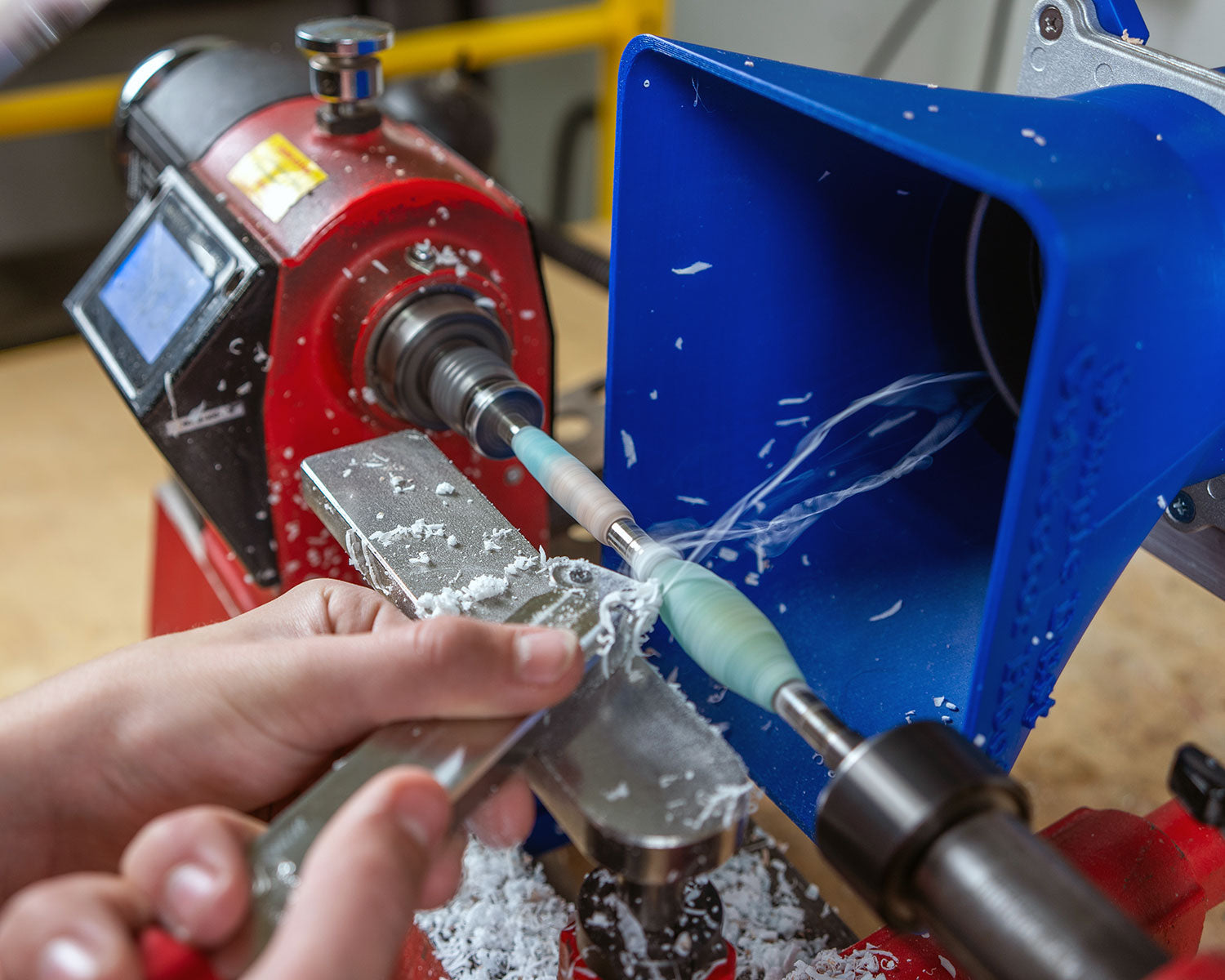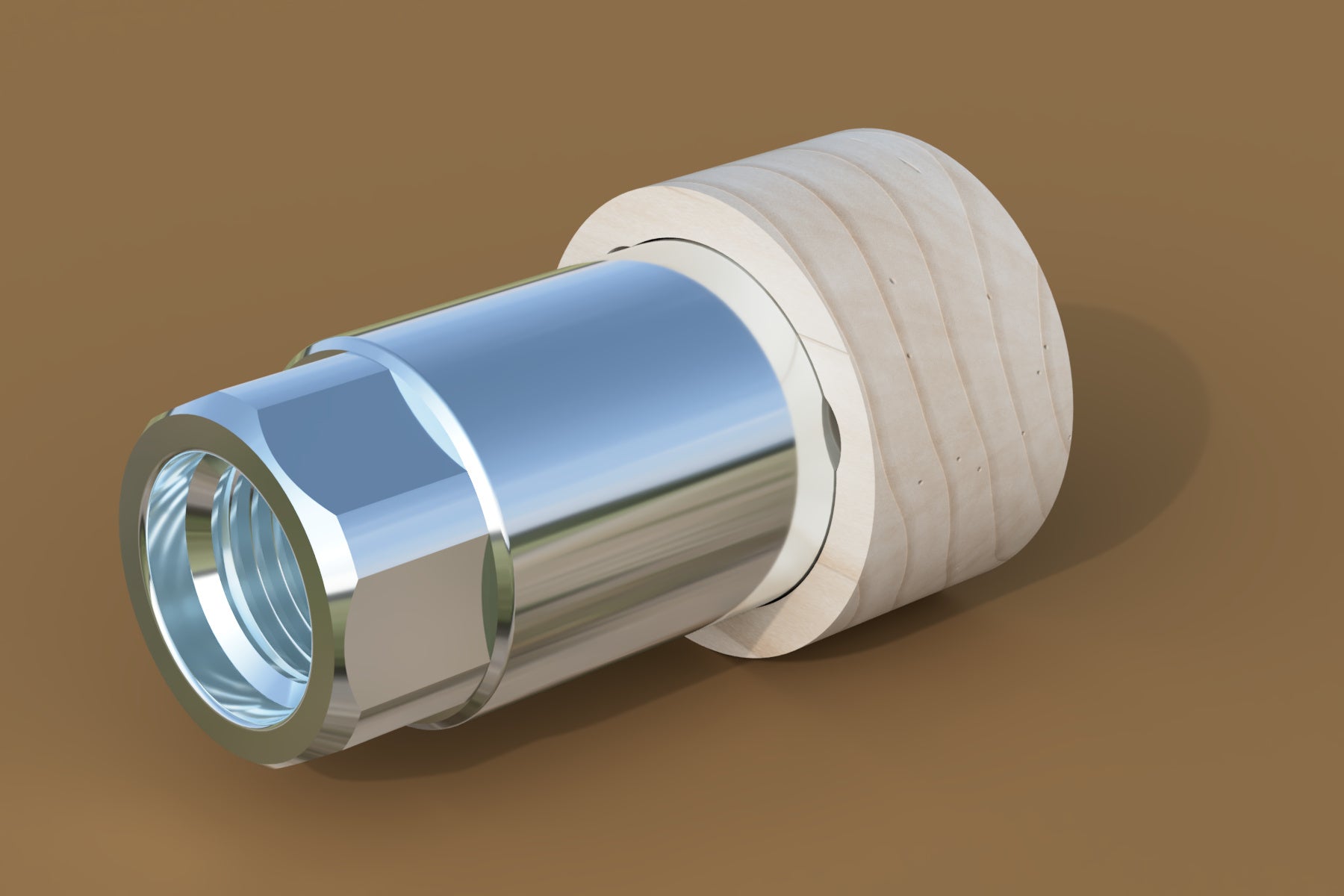Acrylic, Resin and Hybrid projects have changed the woodturning landscape. Traditional carbide tipped tools did not perform well with these new materials, so we set out to make a solution. The birth of our Acrylic/Resin (AR) tool line came as a result of a lot of trials (and errors), turning all types of man-made and hybrid projects. The goal was to create tools that could be used to turn any of the man-made materials we could find, while giving the turner as much creative artistic ability as possible. A one size fits all approach did not produce the desired results across all the different materials available, including hybrid pieces. A nod back to a few early woodturning techniques with the development of carbide tools used like traditional gouges also proved to be a very successful and great approach.
Watch our Tool Demonstrations here: How to use AR Tools
AR S90:
The square tool shaft and square negative rake cutter make this tool incredibly useful in removing material (roughing pen blanks). You can plunge it straight into a piece for small lines, grooves or other detail work or you can approach the piece at a 45 degree angle and make a roughing cut. You can use it to turn down the sharp corners of your pen blank. This tool was a favorite in our testing.
- Tool is held flat on the tool rest
- ½” Square Tool Shaft with 15mm Square Negative Rake Carbide Cutter (search for AR S90 for replacements)
- This tool will work in the Simple Hollowing System.
A few things to keep in mind:
- Turning acrylics takes longer than wood.
- Shearing cuts proved to be very successful, where scraping cuts were not.
- Introduce your cutting edge slowly, try not to “stab” the wood as plastics can shatter with this technique.
- Increase your lathe speed and slow your tool presentation to the blank.
- Work from the ends inward.
Make light cuts to reduce chip outs. Increase your aggressiveness as you get the feel for it.

















